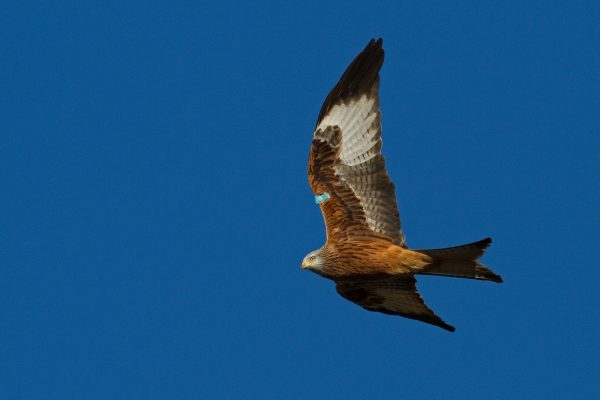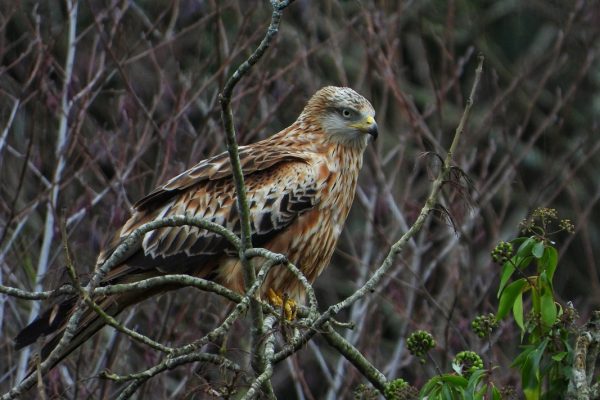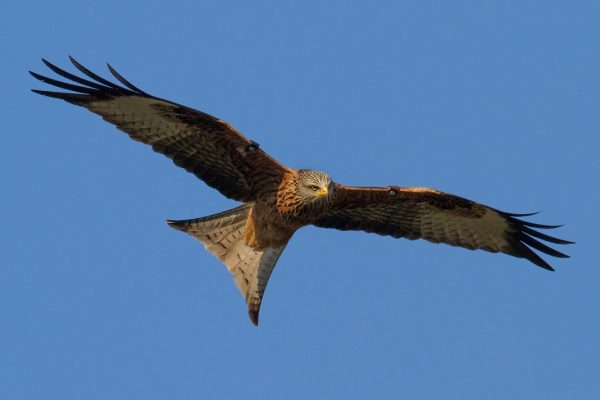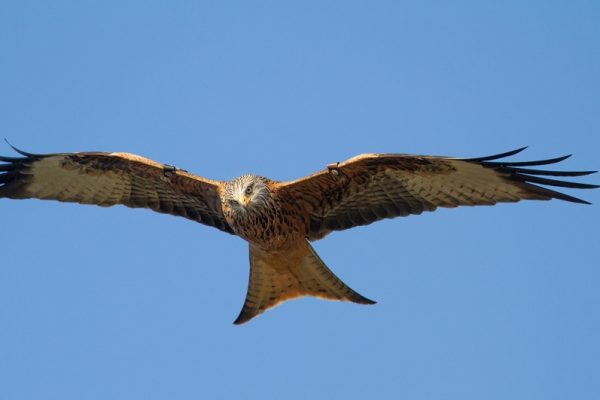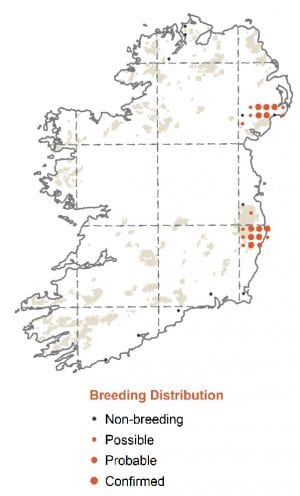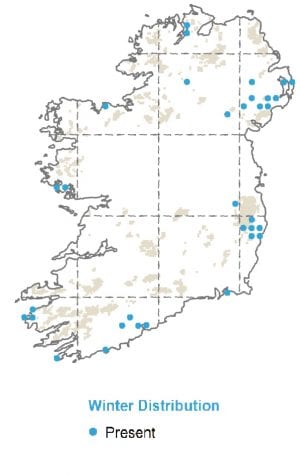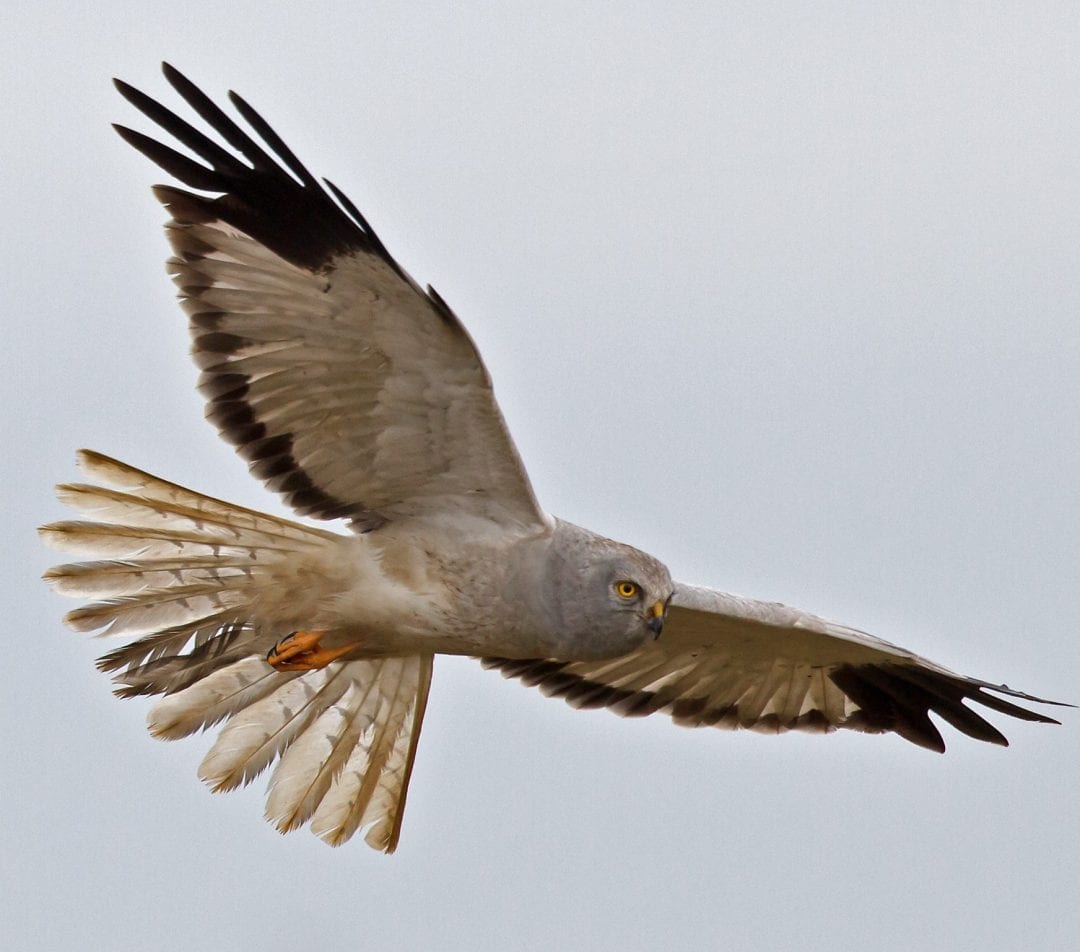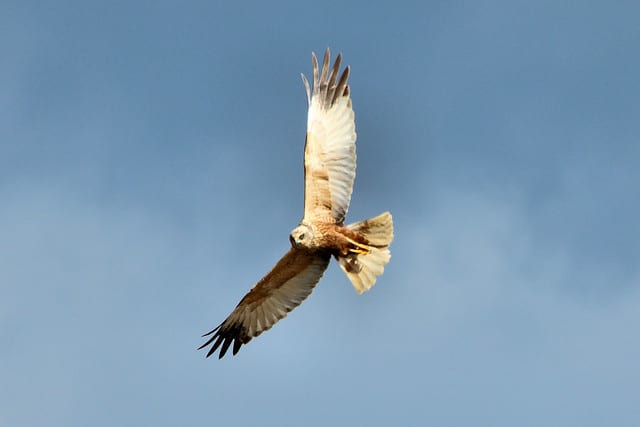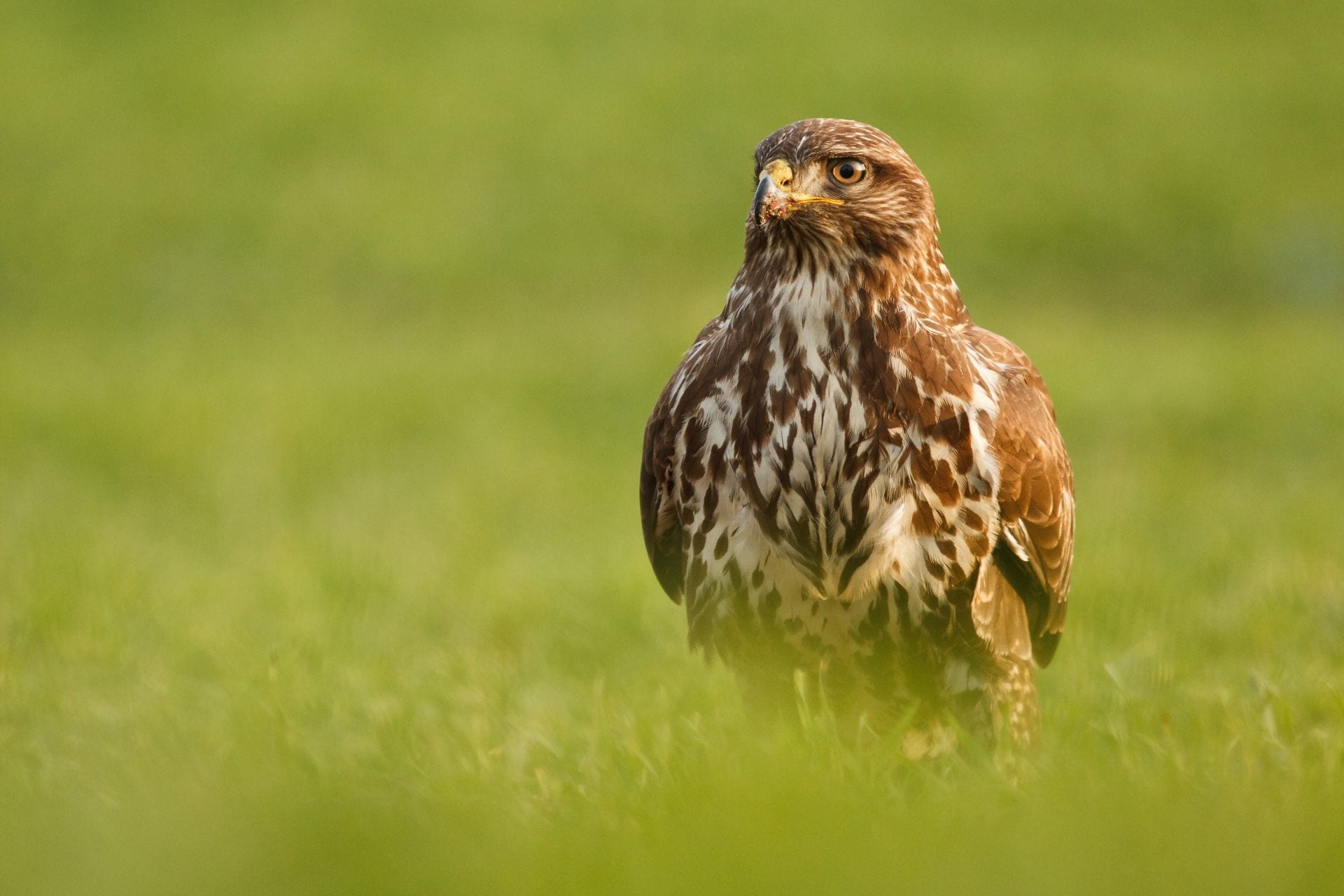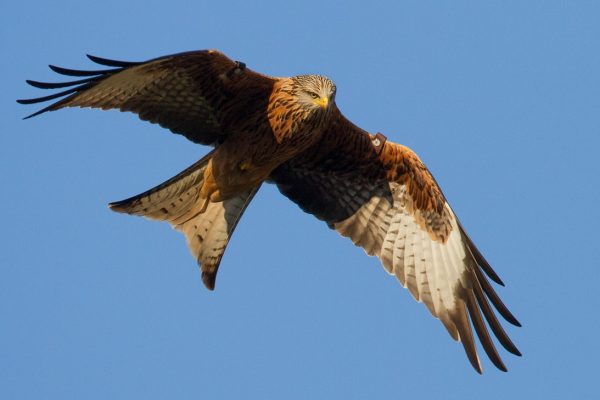
Red Kite
| Irish Name: | Cúr Rua / Préachán na gCearc |
| Scientific name: | Milvus milvus |
| Bird Family: | Raptors |
red
Conservation status
Conservation status
Status
A resident, reintroduced population is slowly expanding from its core range in Cos. Wicklow, Dublin and Down.
Identification
An elegant, graceful bird of prey, larger than a Buzzard, with long wings and a long distinctly forked tail. The body is reddish-brown with dark streaking, the head is greyish and the tail, which is often twisted continually in flight, is orange-red. Viewed from below, the black, fingered wingtips and contrasting white patch on the outer flight feathers stand out. As with most birds of prey, the female is larger than the male. Juveniles look somewhat duller than adults, with less distinct streaking and a thin white line on the upperwing. Many of the Red Kites seen in Ireland bear coloured plastic identification tags on their wings.
Voice
A shrill, mewing 'peee-ooow'.
Diet
Mainly eats carrion, including roadkill, preferring to scavenge rather than hunt. They will happily take live prey if necessary, however, including rats, mice, rabbits pigeons, young crows and even earthworms and other invertebrates.
Breeding
Breeding is currently still confined to the east coast, close to the original reintroduction sites in Cos. Wicklow, Dublin and Down. The nest consists of a large platform of twigs, usually constructed high above the ground in the fork of a deciduous tree branch. Red Kites have the curious habit of decorating their nests with scavenged human items, especially plastic bags, items of clothing (especially underwear!) and even children's toys. 1 to 3 eggs are incubated, mainly by the female, for around 31 days, and the chicks are cared for by both parents.
Wintering
Resident throughout its range. Likes to gather in winter roosting flocks, the largest and best-known of which is close to the village of Avoca in Co. Wicklow, a very reliable site for this species.

